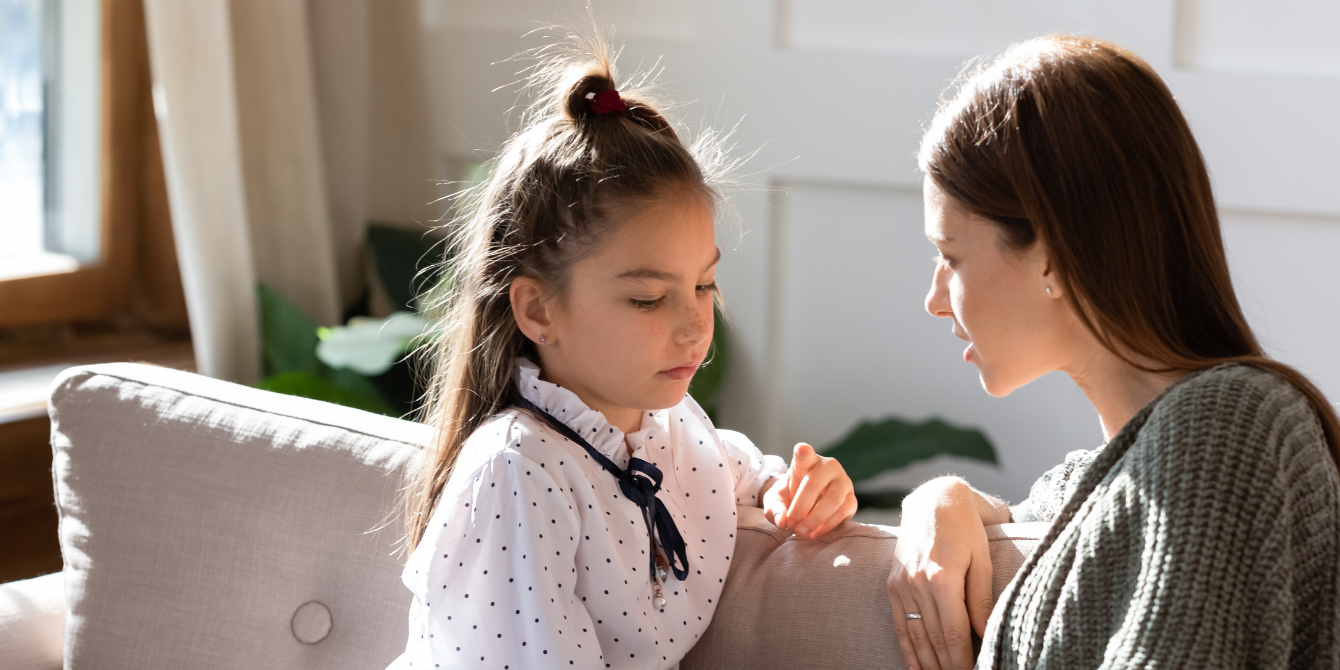
War is always a scary subject to broach with children, and as adults, it can be challenging to know what is true and what is misinformation. However, the news will reach kids eventually, especially if they have family members or classmates impacted by the war, and it’s essential to know how to talk about it with them in a way where they can feel safe. Even if your kids don’t know anyone personally affected by the Israel-Hamas war, they may still feel worried for those living there.
So, what’s the best way to talk to your child about the conflict in the Middle East? Here are a few tips to help.
1. Start with Age-Appropriate Information
Begin by considering your child’s age and maturity. Younger children may not understand the nuances of this conflict, so focus on basic concepts. For example, you can explain a disagreement between people in a distant place about land and their rights. Use simple language and avoid getting into the historical and political complexities that may not be suitable for their age.
Honesty is crucial, but that doesn’t mean you should expose your children to graphic images or detailed accounts of violence. Share information that is appropriate for their age and emotional development. If you’re unsure, consider watching or reading the news together and discussing the content that arises. The Israel-Hamas conflict is intricate, and too many details can be overwhelming, especially for young children. Stick to the essentials and focus on explaining the root causes and the general nature of the conflict rather than delving into specific historical events.
2. Reassure Them
Children may fear for their own safety or the safety of loved ones. They might even be afraid that this war will spark terrorism in their own neighborhood. Reassure them that you are there to protect and care for them. You can also talk about how there are helpers doing their best to protect and care for the people in need.
Listen for the deeper questions they might be asking as well. Though they may want information about the war, their deeper question could be: “Am I safe?” Let them know that the adults in their lives—parents, teachers, coaches, doctors, counselors—are there to help them and keep them safe.
3. Encourage Questions
Tell your children that it’s okay to have questions about the conflict. Emphasize that they can always come to you for answers. This approach helps create a safe space to express their curiosity and concerns. You can also promote critical thinking by asking open-ended questions. Encourage your child to consider different viewpoints and understand that there are often no easy solutions to complex issues. This helps them develop empathy and critical analysis skills.
If your child asks questions that don’t have clear answers or if you’re unsure about certain aspects of the conflict, be honest about it. Explain that experts and world leaders also grapple with these issues, and it’s a part of the ongoing conversation to find solutions.
4. Address Stereotypes and Biases
Teach your children to recognize and question stereotypes and biases they might encounter in the media or society. Explain that conflicts are often fueled by misunderstandings and prejudices, and emphasize the importance of tolerance and respect for all people, regardless of their background. It’s a beautiful opportunity to engage in a conversation about how we can empathize and accept people who are different.
5. Focus on Peaceful Solutions
Empower your children to think about peaceful solutions. Discuss how conflicts can be resolved through negotiations, dialogue, and understanding. You can also encourage them to be advocates for peace and empathy in their own lives. Discuss how they can become problem-solvers when they face bullies or friendship conflicts at school.
6. Monitor Their Exposure to Media
In today’s digital age, children can access a wealth of information online, which may not always suit their age. Too much information, whether true or false, can cause more anxiety and stress for them, especially younger children. Monitor their exposure to news and social media and guide them toward reliable and age-appropriate sources of information.
7. Create a Safe Space for Discussion
Always keep the lines of communication open. Let your children know they can talk to you about their feelings and concerns anytime. This open dialogue will help them process what they see and hear. It’s also important to know that you don’t need all the answers about the conflict, and it’s okay to let your child know that, too.
Conclusion
Talking to your children about the Israel-Hamas conflict is an opportunity to educate them about global issues and cultivate their empathy and critical thinking skills. By providing age-appropriate information, promoting empathy, and encouraging dialogue, you can help them better understand the world’s complexities while fostering a sense of compassion and a desire for peaceful solutions.

Emily currently lives in Orange County, California after spending four years in Illinois and half a year teaching in Florence, Italy. She holds a B.A. in English Literature from Knox College and an M.A. in Counseling from the University of San Diego and has taught English to native speakers and ESL students for over three years. When she’s not working as a School Counselor or writing, she enjoys traveling the world, playing instruments, and blogging about Millennial experiences at Long Live the Twenties.
